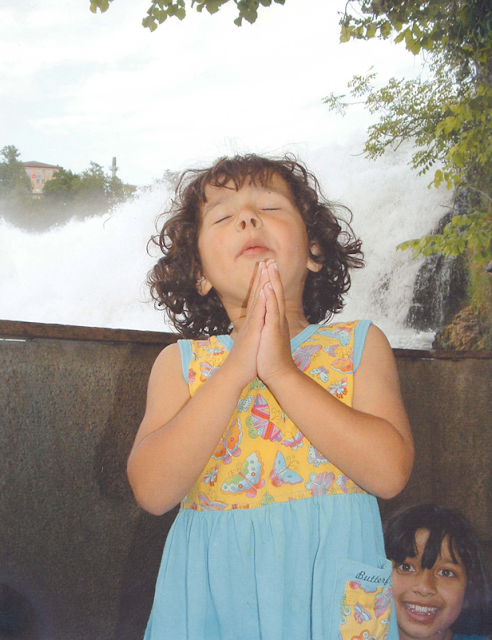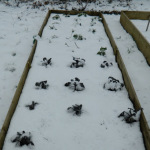 |
| Irene at 4 in Switzerland, thanking God for the waterfall and Zoe behind her. |
Once, when we were travelling in Switzerland with Irene aged 4, she needed the loo in a mall. The lady who left the loo held the door open for her, and she entered, omitting the 25 centime coin you pay to open the door.
Well, Irene has great faith in my prayer, since we’ve seen so much change and changed around once we started praying seriously. Her little face grew troubled, and earnest and dark.











